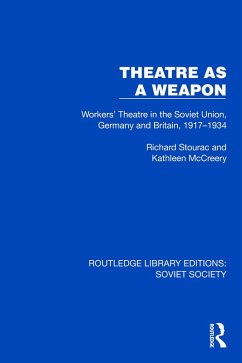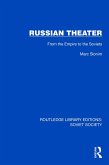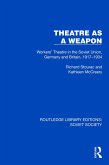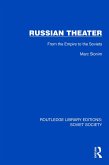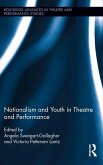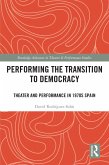Based on theatrical research of unusual depth and enterprise,
Theatre as a Weapon (1986) shows how the workers' theatre of the 1920s and 1930s transformed the social function of theatre. Drawing largely on unpublished sources, it provides lively case studies of workers' theatre in the USSR, Germany and the United Kingdom. They range from the Russian mass spectacles in front of the Winter Palace, through the thousands of factory and courtyard performances in Germany, to the May Day activities of the Workers' Theatre Movement all over Britain. The authors worked for many years in political theatre in Britain, Austria and Germany, and they draw on their wide experience to focus on both major theoretical controversies and their practical ramifications. They show how workers' theatre became an instrument, a weapon, for political change, helping to raise the consciousness of thousands of workers and encouraging them to take action. They describe how worker-actors, musicians, writers and directors formed small, flexible troupes which contributed locally to the day-to-day struggles of their class, while at the same time participating in national and international political campaigns. Developments in dramatic structure are analysed, from the simple review form to the more complex scene-and-song montage. Placing the work of Meyerhold, Eisenstein, Piscator, Brecht and Eisler in this context, the authors demonstrate how the montage principle became the significant factor in the political theatre of this period. The book is illustrated with rare photographs which reflect the atmosphere of those mass movements. Unique in its coverage,
Theatre as a Weapon is above all an analysis of how the mirror of realistic theatre was transformed into a dynamic weapon for social change. It fills an important gap in the history of working-class culture.
Dieser Download kann aus rechtlichen Gründen nur mit Rechnungsadresse in A, B, BG, CY, CZ, D, DK, EW, E, FIN, F, GR, HR, H, IRL, I, LT, L, LR, M, NL, PL, P, R, S, SLO, SK ausgeliefert werden.

